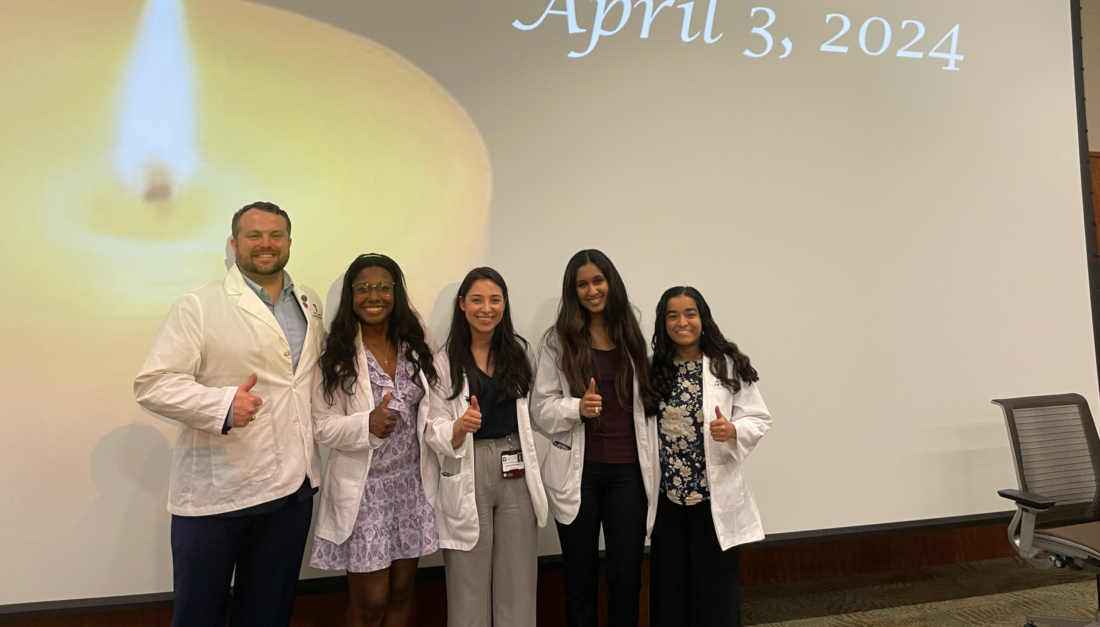Researchers at Texas A&M investigate “the pharmacy inside our bodies” for autoimmunity treatments
Sometimes we need a good gut check. For Robert C. Alaniz, PhD, Arul Jayaraman PhD, and their interdisciplinary team at the Texas A&M Health Science Center and Texas A&M University, gut checks are taken seriously because they’re not doing them metaphorically. The researchers are actually studying gut bacteria and microbes, referred to as the commensal microbiota, to determine what within this vital system keeps the human body in a healthy balance; and how, if left unchecked, it can knock us out of balance.
The benefits of healthy gut bacteria and microbes have surged into the public consciousness over the past several years. It’s one reason why yogurt now outsells ice cream and why probiotics are a multi-billion dollar industry. The general public now understands that the bacteria in our digestive tract are important to our overall health, even if they don’t understand why.

“Microbes are partners with us. They have a huge impact on our overall health by improving our metabolism, strengthening our immune system, protecting us from infection and limiting allergies and autoimmune disorders,” said Alaniz, an assistant professor at the Texas A&M College of Medicine. “Our overall research objective is to focus on what these microbes are producing that we can’t get any other way, and then testing these different molecules in the lab to see how they might benefit human health.”
While some essential compounds, such as fiber, vitamins, and amino acids are provided by the foods we eat, Alaniz says there are potentially thousands of unique molecules produced exclusively by the microbes of our gut.
“We are looking at the biochemical properties of these microbiota compounds and the way they communicate with and regulate the behavior of our immune system,” he said.
Our immune system usually remains quiet, monitoring tissues for infection, damage and foreign bodies. At sites of our body that are exposed to the external environment, where the microbiota are most abundant, the microbiota help maintain this “quiet” state – referred to as homeostasis – when inflammation is under control and limited. When the immune system recognizes something dangerous, like an infectious microbe, it becomes activated, causing an immune response in the form of inflammation.
Normal inflammation appears as fever, a red bump after an insect bite, scar tissue or swelling, which helps our bodies fight the infection and heal. However, when the immune system is unregulated or hyperactivated, more serious problems arise, such as autoimmune disorders, rheumatoid arthritis, psoriasis and even cancer.
Alaniz and his team have already discovered a number of the unique microbiota compounds that promote homeostasis – the normal non-inflammatory state we experience. Their basic science research is unraveling the immune and non-immune cells these compounds regulate and the receptor targets on or inside the cells that recognize the microbiota compounds. Their most recently published research in Molecular Pharmacology reveals the first identification of the host receptor for a handful of these compounds, and that, Alaniz says, will hopefully lead to new therapeutics that can help treat a number of ailments.
In translating their discoveries from the laboratory to the clinic, the researchers have found that in animals with an experimental inflammatory disease, some of the microbiota compounds can be injected, just as any current drug might be, to almost completely cure the disease, without any of the obvious side-effects most current synthetic drugs have.
“We are literally discovering inside our bodies a little pharmacy filled with potential new drugs produced by our microbiota,” Alaniz said. “Our job is to translate these microbiota compounds and formulate them into legitimate next-generation therapeutics with superior safety and efficacy that will transform how we treat the rising incidence of autoimmune and inflammatory disorders in the U.S. and the world.”
Also contributing to the research are Kyongbum Lee, PhD at Tufts University and Stephen Safe, DPhil at Texas A&M College of Veterinary Medicine and Biomedical Sciences.
Media contact: media@tamu.edu


